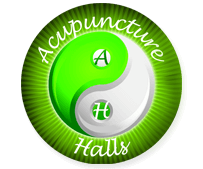
Photo credit to freepik.com
In recent years, traditional healing practices have seen a resurgence in popularity as people seek alternative and holistic approaches to wellness. Acupuncture, an ancient Chinese healing art, is one such practice that has garnered attention for its potential to address a wide range of health issues, including skin problems. While primarily known for its effectiveness in alleviating pain and promoting relaxation, acupuncture’s benefits extend beyond these realms into dermatological care. In this article, we delve into the principles behind acupuncture for skin problems, its potential benefits, and the evidence supporting its efficacy.
Understanding Acupuncture
Acupuncture is a key component of Traditional Chinese Medicine (TCM), which views health as a harmonious balance of the body’s vital energy, known as Qi (pronounced “chee”). According to TCM principles, disruptions or imbalances in the flow of Qi along meridians, or energy pathways, can lead to various health issues, including skin problems.
Acupuncture involves the insertion of thin needles into specific points on the body to stimulate Qi flow and restore balance. These acupuncture points are believed to correspond to specific organs and bodily functions. By targeting these points, acupuncturists aim to address underlying imbalances contributing to skin conditions.
Acupuncture for Skin Problems
Skin problems encompass a wide range of conditions, including acne, eczema, psoriasis, rosacea, and dermatitis, among others. While conventional treatments often focus on symptom management, acupuncture takes a holistic approach by addressing the root causes of these conditions.
Acupuncture’s potential benefits for skin problems include:
- Regulation of Immune Response: Many skin conditions involve immune system dysfunction or inflammation. Acupuncture may help regulate immune function and reduce inflammation, leading to improvements in skin health.
- Stress Reduction: Stress is a known trigger for many skin problems. Acupuncture has been shown to promote relaxation and reduce stress levels, which can indirectly benefit skin conditions by minimizing flare-ups.
- Improved Blood Circulation: Proper blood circulation is essential for healthy skin. Acupuncture may enhance blood flow to the skin, promoting nutrient delivery and waste removal, which can aid in healing and regeneration.
- Balancing Hormones: Hormonal imbalances can contribute to acne and other skin issues. Acupuncture may help regulate hormone levels by influencing the endocrine system, potentially reducing hormonal acne and related symptoms.
- Addressing Internal Imbalances: TCM views skin problems as manifestations of internal imbalances. Acupuncture treatments are tailored to each individual’s constitution and underlying health issues, aiming to rebalance the body and improve skin health from within.
Evidence and Research
While acupuncture’s efficacy for skin problems is supported by anecdotal evidence and centuries of clinical practice, scientific research on its effectiveness is still evolving. Several studies have investigated acupuncture as a complementary therapy for various dermatological conditions, yielding promising results.
For example, a systematic review published in the Journal of Alternative and Complementary Medicine in 2018 examined the effectiveness of acupuncture for acne vulgaris. The review concluded that acupuncture, either alone or in combination with conventional treatments, showed potential in reducing acne lesions and improving inflammatory markers.
Similarly, research on acupuncture for eczema has shown encouraging outcomes. A randomized controlled trial published in the British Journal of Dermatology in 2018 found that acupuncture combined with usual care led to greater improvements in eczema symptoms compared to usual care alone.
While more high-quality studies are needed to further validate acupuncture’s role in dermatological care, the existing evidence suggests that it can be a valuable adjunctive therapy for managing skin problems.
Conclusion
Acupuncture offers a holistic approach to addressing skin problems by targeting underlying imbalances and promoting overall health and well-being. While conventional treatments focus primarily on symptom management, acupuncture aims to restore balance to the body’s internal systems, addressing the root causes of skin conditions.
As interest in integrative and alternative medicine continues to grow, acupuncture is emerging as a promising adjunctive therapy for dermatological care. By harnessing the body’s innate healing mechanisms and promoting holistic wellness, acupuncture holds the potential to complement conventional treatments and improve outcomes for individuals struggling with skin problems.
If you would like to try acupuncture treatment for skin problems, stop by the Acupuncture Halls clinic in San Juan Capistrano, CA. Our licensed acupuncturist, Dr. Martha E. Hall, DAOM, ACN, will assist you with your skin issues. You can also schedule an appointment by calling 949-510-6333 or by contacting us here: Contact Form for Appointment.
